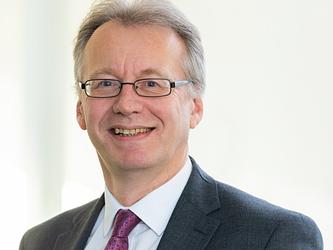Coming face to face with the ‘new normal’
Most of the UK’s high-quality random probability social surveys use face-to-face interviewing. The Covid-19 lockdown meant an immediate pause to this work. But when can, and should, interviewers return into the field to conduct social surveys and other face-to-face interviewing and under what conditions?
Social research organisations represent only a small segment of those conducting face-to-face interviewing. Behind the US, the UK has the second biggest market research industry in the world, worth more than £5bn per annum. Understandably, there is a desire in the commercial sector to get back into the field as soon as possible, as restarting face-to-face interviewing is paramount to people’s jobs and livelihoods, mirroring similar issues in the non-essential business sectors affected by the Covid-19 pandemic.
Meanwhile, the Market Research Society has warned a diminished face-to-face research sector risks less robust and representative research, increased social inequality with some groups at risk of losing their voice and the loss of the UK as a global leader and innovator for research.
While social research organisations should not necessarily be driven by what others are doing, it is relevant context. At one level, there is a stronger argument for putting the key national social surveys back into the field than, say, for resuming mystery shopping. However, the national surveys present additional challenges as they are typically complex, especially those on the public’s health, and less readily adaptable to completion on the doorstep rather than in the home.
Are we ready to restart face-to-face interviewing now?
Ensuring safety for interviewers and the public is key to planning. Restarting in-home face-to-face interviewing requires government, commissioners, research organisations, interviewers and the public to all be ready. In practice, the first four of these groups will take their signals from the public because participation is voluntary and depends on respondents’ willingness to contribute knowledge, experiences and views.
It seems reasonable, then, to work from an assumption that a return to face-to-face interviewing requires two conditions: ( 1 ) the health risk to the public and interviewers to be sufficiently low and ( 2 ) the public generally to have low levels of Covid-19 related concern or anxiety around the face-to-face interaction.
On the first of these conditions, the data and messages from the government and the NHS are crucial. The gradual easing of lockdown restrictions and the recent cutting of the national alert level to Level 3 suggest that, while we’re not out of the woods with Covid-19, a return to face-to-face interviewing need not be far away.
Are the public ready for face-to-face interviewing?
The answer to this question must lie with people themselves. At NatCen, we’ll be asking the public from July onwards for their views and how they’re feeling about taking part in our surveys currently, including seeking views through the NatCen Panel.
At the same time, we are busy exploring innovative methods such as using socially distanced face-to-face sample recruitment with the interviews themselves carried out by video and web. The likelihood is that, even once in-home face-to-face interviewing restarts, there will be groups of the population, such as older people, for whom socially distanced interviewing may continue to be important – so we are preparing to offer these methods alongside the traditional face-to-face approach.
Face-to-face interviewing in the “new normal”
Over the next three months, we are likely to see a “new normal” evolve – offices and non-essential shops are re-opening, we’ll be queuing at the hairdressers from early July, meeting our remote families again, going back to the pub and taking staycations over the summer. Some of us are even prepared to fly overseas again and, in September, our children will return to school.
Unless there is a second wave of the virus, it would seem highly unlikely on that basis that face-to-face interviewing won’t restart on or before 1 January 2021. Plans for this restart will need to be flexible, with official guidance varying for different parts of the UK and a need to respond to local outbreaks – as we’re seeing in Leicester – when these occur.
As usual, we are expecting a mixture of approaches, including some commissioners wanting to return to face-to-face in some form as early as September, or for the October to December quarter, restrictions permitting. Others will feel it’s best to wait until January.
Our recommendation is for commissioners of the continuous national surveys to consider the start date on a quarter by quarter basis from now, but to also plan that face-to-face interviewing will resume for the 2021 survey year. Of course, we’ll be ready to restart as soon as it’s safe and the public are ready. Providing those in power with a picture of people’s lives, and their views on the issues of the day, is as important now as it has always been.
Guy Goodwin is chief executive of the National Centre for Social Research.

We hope you enjoyed this article.
Research Live is published by MRS.
The Market Research Society (MRS) exists to promote and protect the research sector, showcasing how research delivers impact for businesses and government.
Members of MRS enjoy many benefits including tailoured policy guidance, discounts on training and conferences, and access to member-only content.
For example, there's an archive of winning case studies from over a decade of MRS Awards.
Find out more about the benefits of joining MRS here.












0 Comments